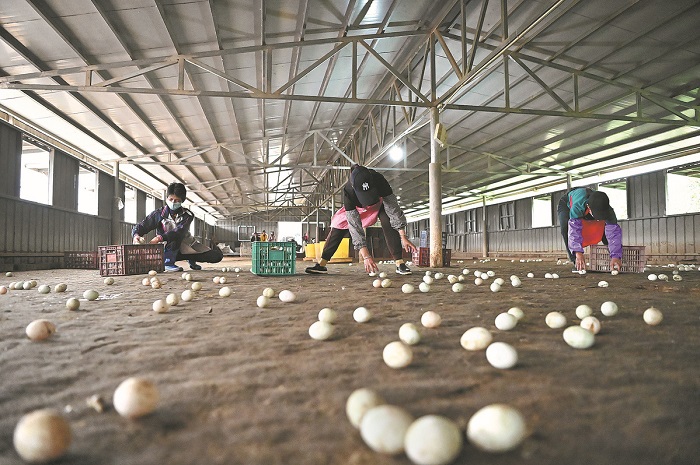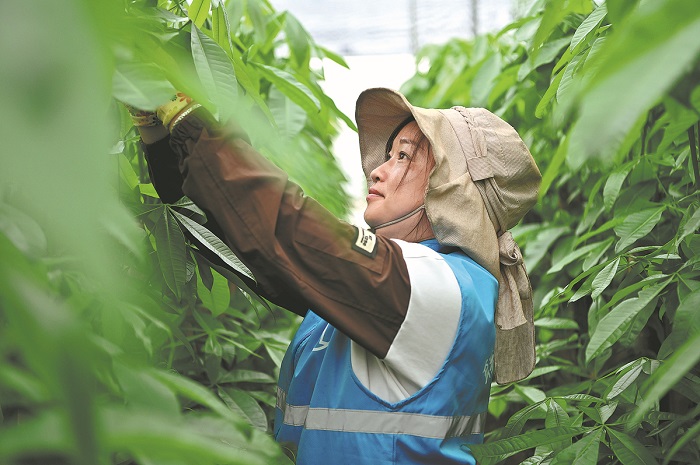'Money trees', sea duck eggs create jobs in Guangxi

Workers collect sea duck eggs at a plantation in Hepu county, Guangxi Zhuang autonomous region. ZHANG ZHUOWEN/XINHUA
NANNING — Villagers in Hepu county, in South China's Guangxi Zhuang autonomous region, skillfully braid the stems of young Pachira aquatica, dubbed the "money tree", forming them into attractive shapes.
"My father taught me this technique back when I was a kid; now, I can finish one piece in 10 seconds and earn over 300 yuan ($41.55) a day," said Wu Zuoye, a young resident of Dazhuangjiang village.
"The braiding season can last for eight months a year, and for the rest of the time I can also help with raising seedlings and pruning to make more money."
In Hepu, Dazhuangjiang is known as an "affluent village".
"People from our village don't have to leave their hometown to seek jobs, as we have the money tree planting business," said Zhang Baoyu, the village's Party secretary.
Almost all families living in Dazhuangjiang now cultivate money trees. By the end of last year, the village boasted 320 hectares of planting area for the trees, with an annual output value exceeding 100 million yuan, according to Zhang.
Money tree planting offers a glimpse into the progress of Hepu's agricultural development. Based on its hilly, coastal terrain, the county has been developing rural industries with distinctive local features in recent years.
At a demonstration base for sea duck farming in Qunzhu village, thousands of ducks are raised for eggs. When the tide comes in, it carries small fish and shrimp. In a short time, they are diverted to some two dozen ponds on the waterfront and become a meal for the sea ducks.
"For us, the duck eggs are 'golden eggs'," said Zhong Shengqing, an employee of the base.

A worker braids the stems of young "money tree" at a plantation in Hepu. CHEN LUYUAN/XINHUA
The eggs are transported to a workshop in the county after collection. After pickling, baking and packaging, they become a well-known local specialty, pickled sea duck eggs.
The base was built jointly by Qunzhu village and Hetianbaolong, a food processing company. It not only benefits the villagers but also the wider sea duck egg business.
"In the past, we used to purchase duck eggs directly from villagers," said Long Haijun, an executive from Hetianbaolong. However, the varying quality and limited quantity of the eggs made it difficult for the company to operate.
Thanks to the base, it can now get high-quality sea duck eggs every day to maintain operational stability, Long said.
Besides the sea duck egg business, Hepu county has striven to develop its marine economy by promoting aquaculture such as fish farming. The total output of aquatic products in the county reached 509,400 metric tons last year, up 3.54 percent year-on-year.
Through support for rural industrial projects and talent, Hepu has upgraded its agricultural industry and has provided more job opportunities for residents, said Pan Xiaowen, director of the county's agricultural and rural affairs bureau.














